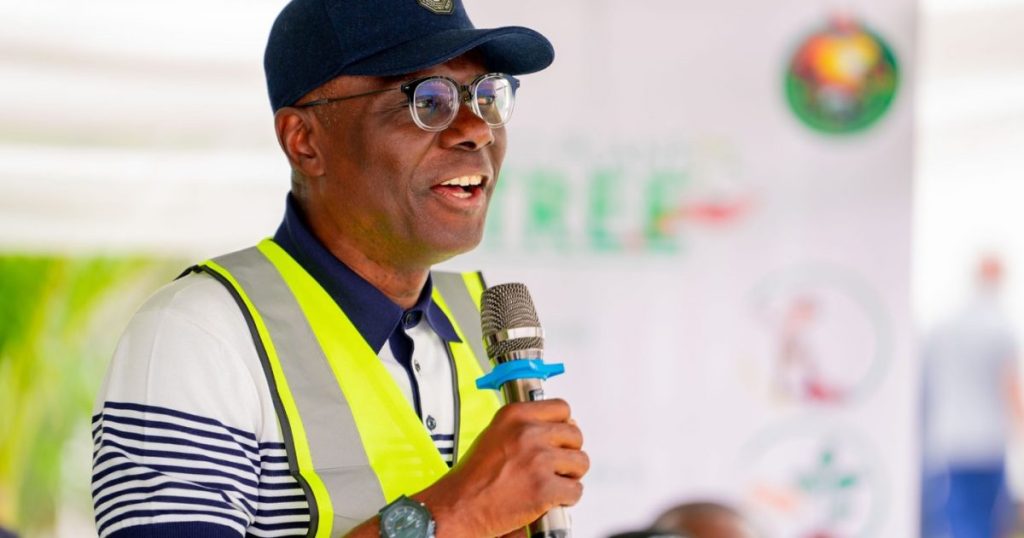Governor Babajide Sanwo-Olu of Lagos State has recently emphasized the crucial role of youth in shaping a sustainable and livable environment, urging stakeholders from various sectors to prioritize their development. During the keynote address for the 2024 World Habitat Day in Ikeja, he made a compelling call for collaborative efforts among government agencies, private sector partners, civil society, and youth leaders to create opportunities for youth-oriented entrepreneurship and innovation. Sanwo-Olu believes that by nurturing an environment conducive to youth growth, Lagos can continue on its trajectory of prosperity. This vision aligns with the broader goals of urban sustainability, echoing the importance of fostering a future where the vibrant youth of Lagos can thrive.
Acknowledging both the potential of Nigerian youth and the challenges they face, Sanwo-Olu stressed the urgent necessity to confront societal issues such as unemployment, crime, and substance abuse. He highlighted his administration’s commitment to addressing these challenges through robust investments in education, vocational training, and mentorship programs designed to equip young people with vital skills. These initiatives aim to inspire the youth to become positive forces in society, moving away from detrimental habits towards constructive social transformation. According to the governor, empowering youth with the necessary tools will enable them to navigate obstacles and emerge as architects of change in their communities.
The governor reaffirmed that it is a shared responsibility to cultivate an environment conducive to youth development. He challenged all stakeholders to commit to creating a Lagos that empowers every citizen, particularly the youth, to realize their full potential. This goal is aligned with the state’s resilience strategy focused on addressing climate change impacts, improving infrastructure, and enhancing public transportation. Sanwo-Olu’s passionate entreaty highlights the need for concerted action to ensure that the youth can contribute to a sustainable, inclusive, and economically vibrant Lagos, recognizing the interconnected responsibility across society to uplift younger generations.
In his address, Sanwo-Olu recognized that Lagos, with over 22 million residents, represents Africa’s largest city and serves as Nigeria’s economic engine. He pointed out that approximately 51.5 percent of this population is comprised of youth, marking them as pivotal players in fostering growth and innovation. Their creativity, energy, and resilience are critical components in realizing the goal of a vibrant and sustainable Lagos. The governor reiterated that harnessing the potential of the youth is essential for addressing pressing issues such as rapid urbanization, housing deficits, population growth, and environmental degradation that challenge the state.
Dr. Oluyinka Olumide, the Commissioner for Physical Planning and Urban Development, echoed the governor’s sentiments during the welcome address. He emphasized the vital contribution of young people in the development agenda of Lagos State under the leadership of Sanwo-Olu, as reflected in the T.H.E.M.E.S+ Agenda. Dr. Olumide underscored that engaging the youth is not just about securing the future; it is also about recognizing their present significance in urban development today. Their unique perspectives, creativity, and energy are essential for addressing contemporary urban challenges and ensuring cities thrive in the 21st century.
As the commemoration of World Habitat Day highlights the theme, “Engaging Youth to Create a Better Urban Future,” both Governor Sanwo-Olu and Commissioner Olumide mark the occasion as a pivotal moment for recognizing and leveraging the contributions of youth in Lagos. By aligning institutional frameworks with youth empowerment initiatives, the administration aims to forge paths for future generations that capitalize on the energy and creativity of their youth. This commitment reflects a vision of a resilient, inclusive, and sustainable urban ecosystem, where young people are not merely beneficiaries of programs but active contributors to their city’s development trajectory.














